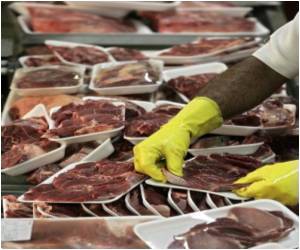An uproar last year over horse meat being passed off as beef has instigated the United Kingdom to form a new crime unit designed to fight food fraud.
An uproar last year over horse meat being passed off as beef has instigated the United Kingdom to form a new crime unit designed to fight food fraud. To help prevent such future fraudulent practices, German scientists have developed a new technique to detect meat adulteration., which they claim shows vast improvement as compared to current methods. This was publish in American Chemical Society ACS'
Journal of Agricultural and Food Chemistry.
Hans-Ulrich Humpf and colleagues note that food fraud is a major global economic problem. But they also say that adding, for example, horse or pork to other meats without disclosure also can cause consumers to violate their ethical standards and religious practices. The severity of the issue came to light last year in Europe when many ground beef products were found to contain horse meat. And some "beef" samples were as much as 100 percent equine. Food industry experts have attributed the wide-scale problem to organized crime.
To help root out such fraudulent practices, food scientists and regulators have a couple of methods at their disposal. But these techniques occasionally yield false results, cannot detect more than one kind of adulterant or are ineffective at testing processed food, such as sausages. To address these problems, Humpf, along with Christoph von Bargen and Jens Brockmeyer, took another approach, building on the recent introduction of mass spectrometry for meat authentication.
The researchers designed a rapid and simple method for extracting and analyzing proteins from processed food to detect whether horse or pork meat is present. When they tested their approach, they found it was sensitive enough to reliably detect as little as 0.24 percent horse or pork meat even in highly processed beef samples.
Source-Eurekalert















